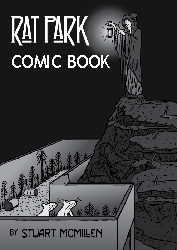In 1995 the WHO announced the release of a multinational study of how cocaine is used around the world, but the study was never released, depriving the world of essential knowledge in the middle of a moral panic about crack cocaine. The story of this suppressed research was finally made public by Ben Goldacre, writing in The Guardian newspaper in 2009. Bruce Alexander was the principle investigator at the Vancouver site (one of 21 sites) in the suppressed study.
Read more: The Suppressed 1995 WHO Cocaine Study
This is one of the "site reports" from a WHO Cocaine Study that was completed in 1995 but never published because of intervention by the US government (See article in this section entitled "The suppressed 1995 WHO Cocaine Study). It was submitted in this form from the Vancouver Site, one of 21 or 22 sites in the study, and accepted as part of the Final Report, which was never released. I was Principal Investigator at the Vancouver Site. The Authors of the site report are the four paid interviewers and myself. This material has never appeared in print.
Read more: The British Columbia Key Informant Study
This information package presents the results of an international study on cocaine executed by the World Health Organization (WHO) and funded by the United Nations lnterregional Crime and Justice Research Institute (UNICRI).
The material included does not represent the official views of WHO or UNICRI. Conclusions of the study require careful interpretation, particularly when making comparisons between different substances of their harmful health consequences. In no way should it be read that WHO or UNICRI endorse the use of any psychoactive substance. It is recognized that there are risks associated with the use of all such substances.
Read more: WHO/UNICRI Cocaine Project
This article by Linda Wong and myself appeared in the Journal of Drug Issues in 1991. It shows how the media of the day misled the public about the basic facts concerning cocaine use.
Read more: "Cocaine-Related" Deaths

